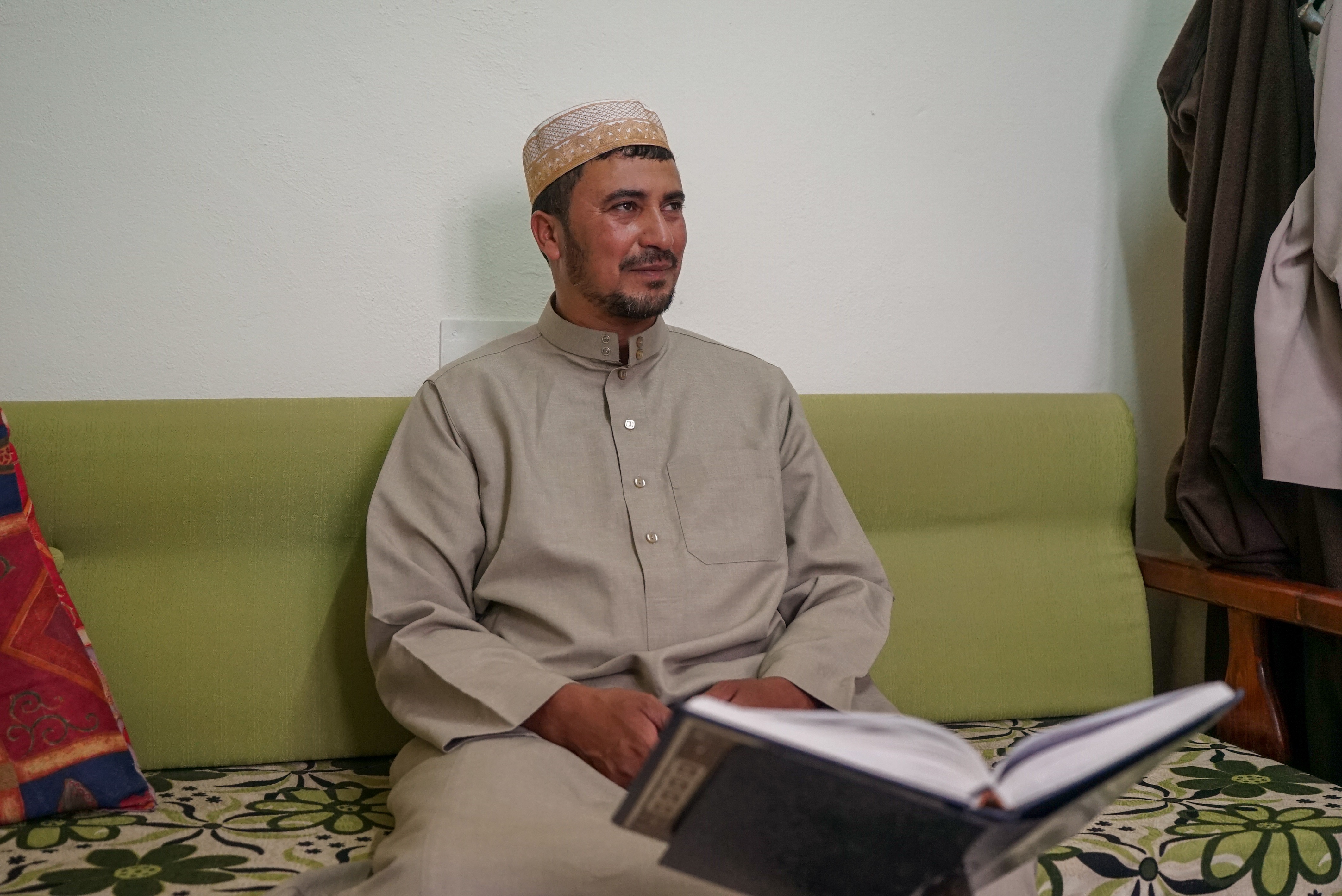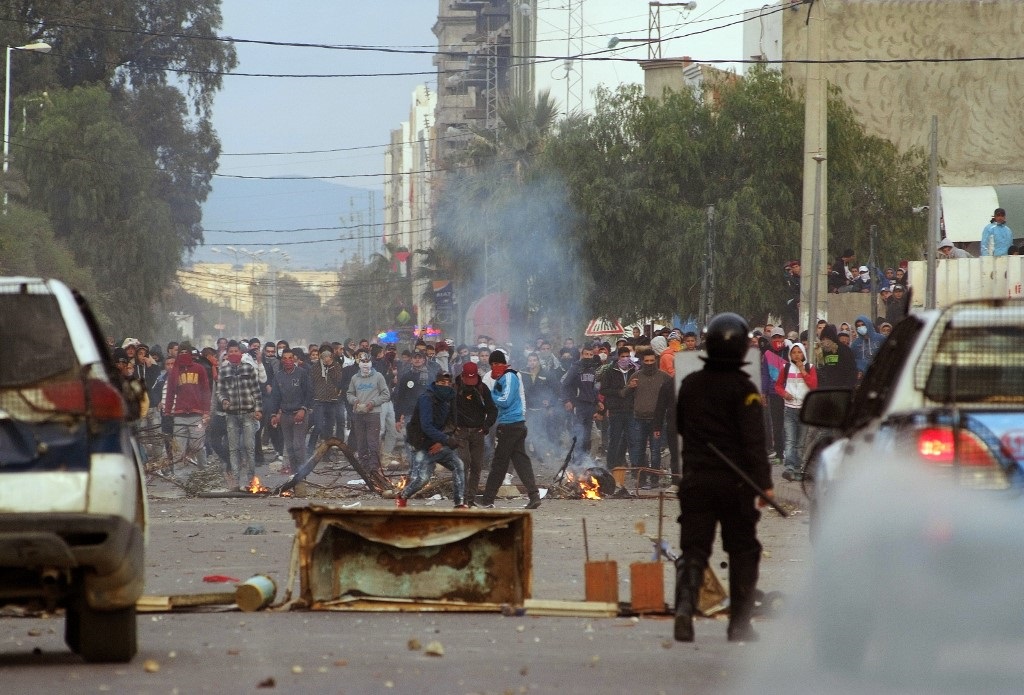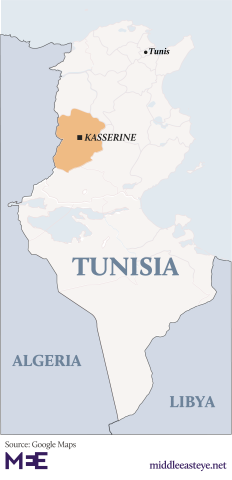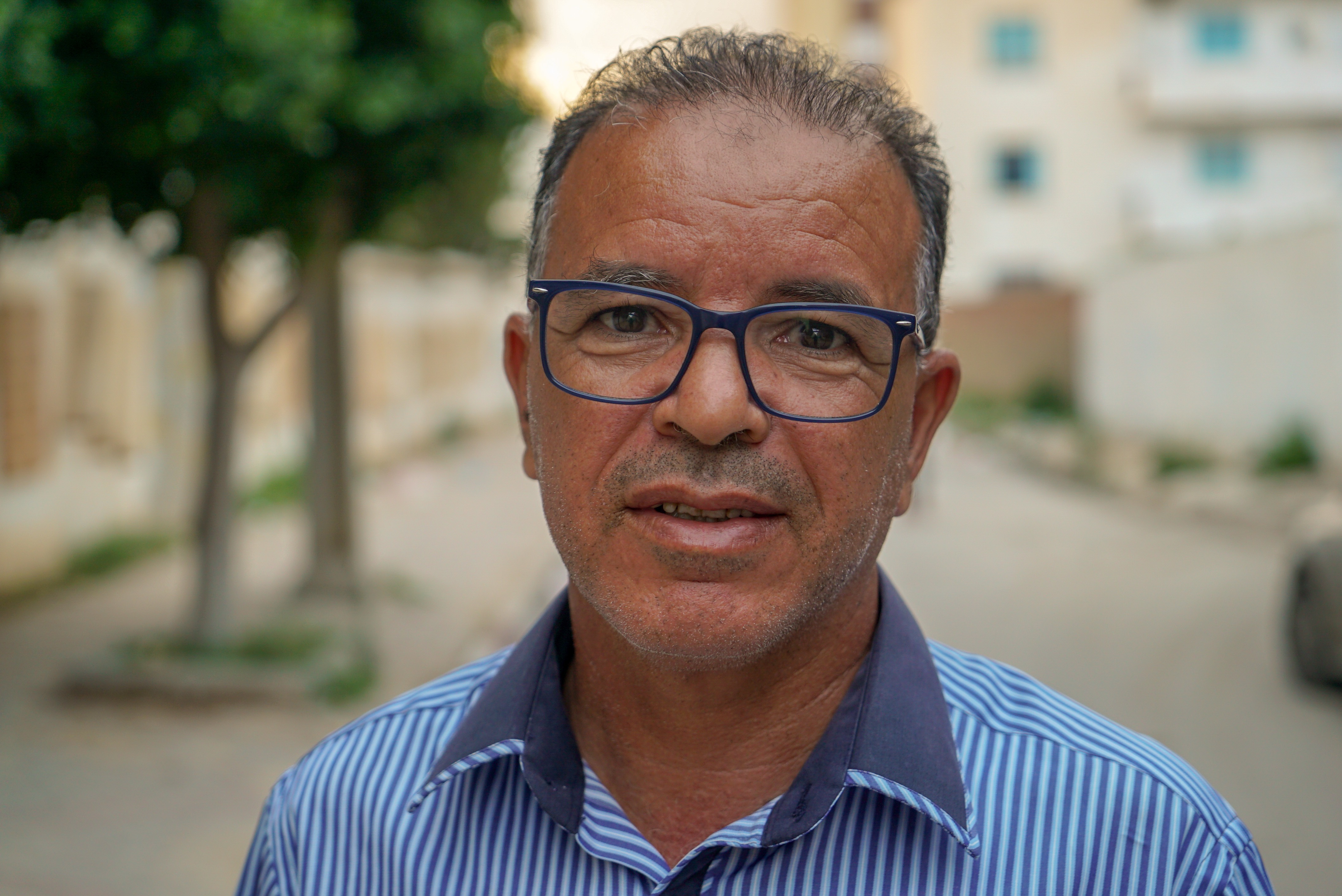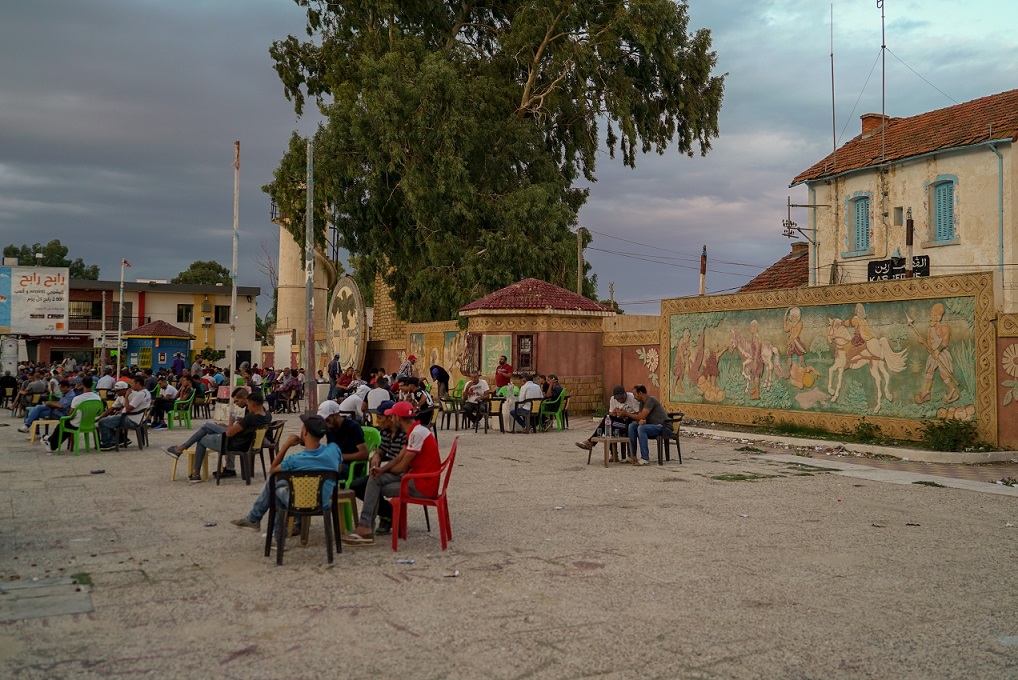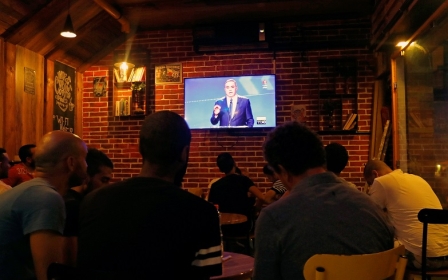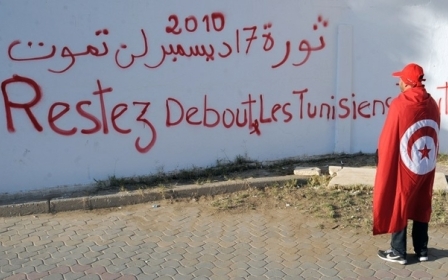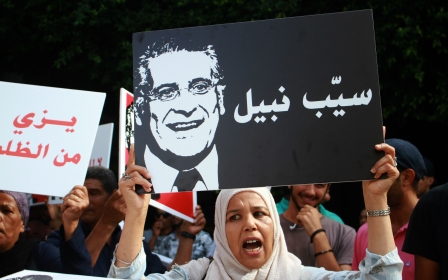'Easy pickings': In Tunisia's interior, neglect leaves youth ripe for indoctrination
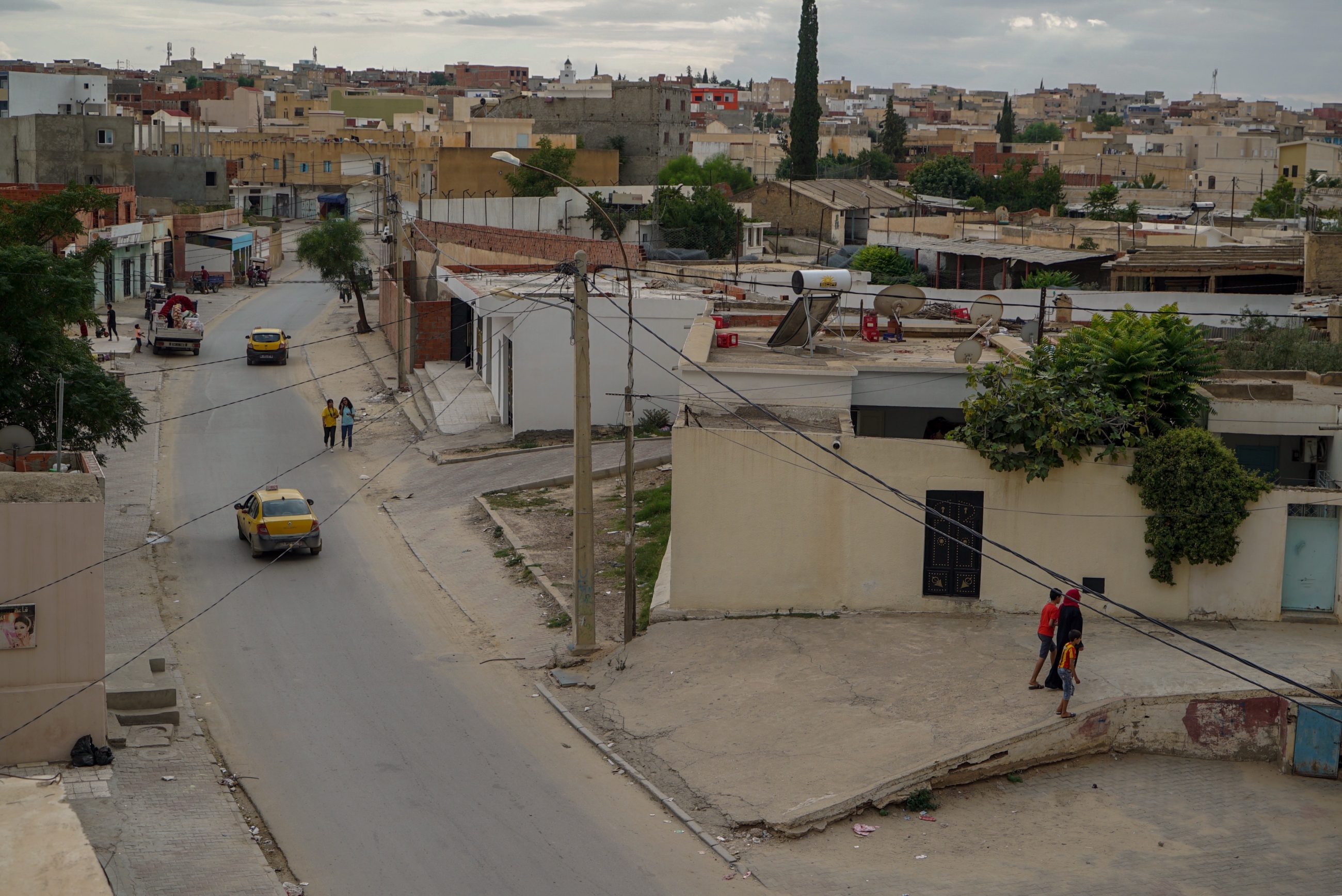
The night of 25 June will forever be etched in Mahfouz bin Der’a’s memory.
It was supposed to mark the arrival of the last ten nights of the Muslim holy month of Ramadan, a time of reverence and remembrance.
But at the al-Furqan mosque, where Bin Der’a regularly leads communal prayers, a dangerous showdown was about to unfold.
'Most of the youth here are unemployed and don’t have a strong grasp of Islam either. They’re easy pickings for armed groups'
- Mahfouz bin Der'a, al-Furqan mosque imam
Minutes before the call for night prayers was set to sound, the 41-year-old received an ominous phone call: a fighter from Jund al-Khilafah - the Islamic State (IS) group's local affiliate - is planning to assassinate you in the mosque, a security official said.
"We’re ready to stop him, but be ready, he’s coming," the official told him.
New MEE newsletter: Jerusalem Dispatch
Sign up to get the latest insights and analysis on Israel-Palestine, alongside Turkey Unpacked and other MEE newsletters
Bin Der’a knew that his sermons, which routinely criticised the use of arms against the state, had angered two of the largest armed groups operating in the rugged mountainous region of Kasserine.
After the 2011 uprising against longtime leader Zine El-Abidine Ben Ali, the region along the Algerian border became a haven for al-Qaeda’s local branch in Tunisia: the Uqba ibn Nafi Battalion (KUBN) and later Jund al-Khilafah, groups which rejected the authority of the central government.
The armed groups preyed on poor families in hardscrabble villages and towns, offering young, unemployed men a sense of belonging. The imam said one of his friends, an illiterate shepherd, had been recruited by one of the groups to spy on Tunisian security services but was executed when the militants suspected that he was playing for both sides.
It was one of these vulnerable men, Bin Der’a says, who made his way through the doors of al-Furqan on the night of 25 June, armed with a gun.
As he went to reach for his weapon, a group of plain-clothed officers wrestled him to the ground. Other worshippers, completely unaware of what was unfolding, looked on in horror.
“I’ve received several threats on my life since I began countering their perverse ideology, but nothing was quite as bad as that night,” bin Der’a told Middle East Eye, sitting in the al-Furqan mosque which is nestled in the city’s impoverished al-Noor neighbourhood.
“Most of the youth here are unemployed and don’t have a strong grasp of Islam either. They’re easy pickings for armed groups.”
‘Despair and hopelessness’
While Tunisia, the birthplace of the so-called “Arab Spring”, is the only country to have achieved a peaceful transition to democracy since its 2011 uprising, Kasserine is a microcosm of the problems bedevilling the country.
Many of its residents, including those who were adolescents some eight years ago, say economic promises made at the time of the revolution have failed to materialise, taking the shine off democracy.
Frustrated by the rise in unemployment, the region is rocked by regular protests, some of which turn deadly.
Nationwide, the unemployment rate hovers at around 15 percent, but in interior governorates such as Kasserine, it tops 30 percent.
Inflation has also eaten away at people’s purchasing power, with the annual rate peaking at 7.5 percent in 2018, its highest level in three decades.
According to analysts, the region, which is home to around 400,000 people, is also the country's poorest, with less than three percent of its youth pursuing a university education.
Instead, residents rely on smuggling, with nearly one-fifth of all adults involved in the contraband trade, according to analysts.
“There’s a real sense of despair and hopelessness here,” said Mahmoud Kahri, an independent MP representing the region.
"Some of these kids can't afford to buy a loose cigarette and the armed groups know this. So what do they do? They offer them financial rewards in this life. They ask them to work for them. They also claim this will lead to a better situation in their hereafter."
According to the UN, between 2011 and 2016, around 4,000 Tunisians travelled to Syria to fight for al-Qaeda, and later IS, while another 1,500 headed to Libya, making the country one of the largest per capita contributors of foreign fighters.
Several of those who went abroad were from interior regions such as Kasserine.
Most of the Tunisians who left either died in the battles for Raqqa or Mosul, or were captured by Kurdish fighters near Baghouz, IS’s last remaining enclave in northern Syria which fell to Kurdish forces in February.
Tunisian authorities have said that while they are bound under the constitution to accept those who have returned, only 800 are estimated to have come back.
Most of those who have returned are either languishing in prison or are under police surveillance. Meanwhile, analysts say that both Jund al-Khilafah and KUBN have started to try and recruit fresh young locals into their ranks.
“If the government thinks that jailing people will address the problem of radicalism, it’s clearly on the wrong track,” Borhane al-Yahyaoui, a local journalist, author and researcher of Tunisia’s armed groups, told MEE.
“With each of the armed groups having less than 100-core fighters, the government needs to develop a coherent strategy which tackles their brutal ideology. Unless they do that, these groups will regroup and launch further attacks in the country”.
‘We hate the government’
In recent years, both Jund al-Khilafah and KUBN have targeted tourist centres across Tunisia, an industry which serves as a key driver for the economy.
Jund al-Khilafah claimed responsibility for both the 2015 attack on a beach resort in Sousse and the Bardo Museum attack in Tunis, which left scores of foreigners dead.
So far this year, it has claimed responsibility for at least four attacks, including twin suicide bombings that hit Tunis in June, killing one police officer and wounding eight.
And on 10 September, state media reported that four men, who had reportedly professed their allegiance to IS, were arrested after stabbing a tourism policeman in the city of Tozeur. The policeman survived the attack.
“There aren’t as many attacks on average in Kasserine governorate as there were between 2013-2017, but there are still a high number,” said Aaron Zelin, an expert on armed groups in Tunisia and fellow at the Washington Institute.
IS has also continued to release new videos on Telegram, an encrypted messaging application, including one from late July which pledged allegiance to Abu Bakr al-Baghdadi and promised to “spread terror in Tunisia”.
According to Massoud Romdhani, the president of the Tunisian Forum for Economic and Social Rights, a local civil society NGO, the armed groups may have begun working with smuggling networks to raise funds, levying taxes on contraband such as petrol and weapons.
“If the government doesn’t invest in this region and try to integrate these youth into the state, there could very well be a spike in attacks,” he told MEE.
“For several years, the people in this region have been forced to fend for themselves. Unless the government engages with them, they will continue to undertake criminal activities such as smuggling, and potentially, join the fighting”.
'Waste of time'
While the threat of armed groups remains persistent, the country’s security forces claim they are winning the fight against extremism.
On 2 September, the government announced that it had killed El Bey el Akrouf, an Algerian national who was said to be the leader of KUBN.
'You won’t find one person here who likes the government. We hate them'
- Sabri, unemployed in Kasserine
However, at a busy coffee shop in Kasserine’s main square, several locals said they knew people who sympathised with armed groups after losing all hope in the political process.
“You won’t find one person here who likes the government. We hate them,” said Sabri, an unemployed 34-year-old who didn’t want to give his surname due to security concerns.
“After the 2011 revolution, we had ambitions, simple ambitions: to find work, maybe set up our own businesses, but nothing has materialised. It was all a waste of time.”
On 15 September, millions of Tunisians are expected to cast their vote in the country's second free presidential election since the 2011 uprising.
While there are 26 candidates in the race, there is currently no clear frontrunner, raising the possibility of a second round of voting.
Sabri says that while he has nothing but time on his hands, he won’t be heading to the polls on Sunday to cast his ballot.
For Mahfouz bin Der’a, unless the government addresses the lack of economic opportunities available to youth, his sermons and the threats against his life will continue to be in vain.
“I won’t stop condemning these groups who twist the religion into something it isn’t,” he said.
“But if the government wants to fully address the region’s problems, it needs to start investing in the people. It needs to take an active role in the economic development of Kasserine and improve the lives of the people of the interior."
Middle East Eye delivers independent and unrivalled coverage and analysis of the Middle East, North Africa and beyond. To learn more about republishing this content and the associated fees, please fill out this form. More about MEE can be found here.


